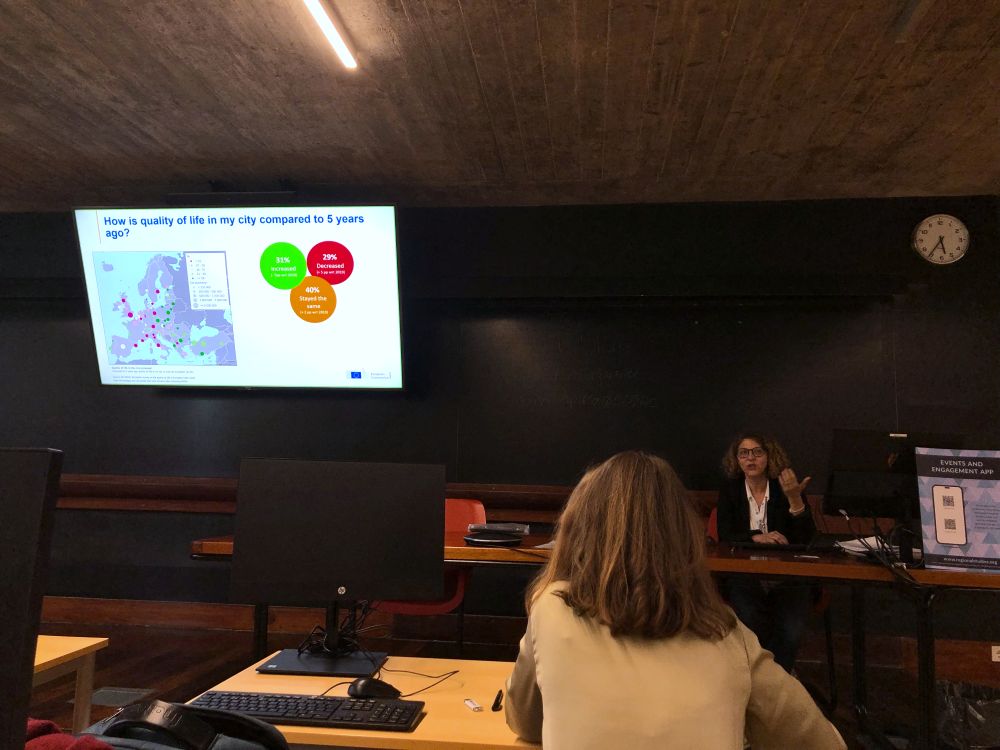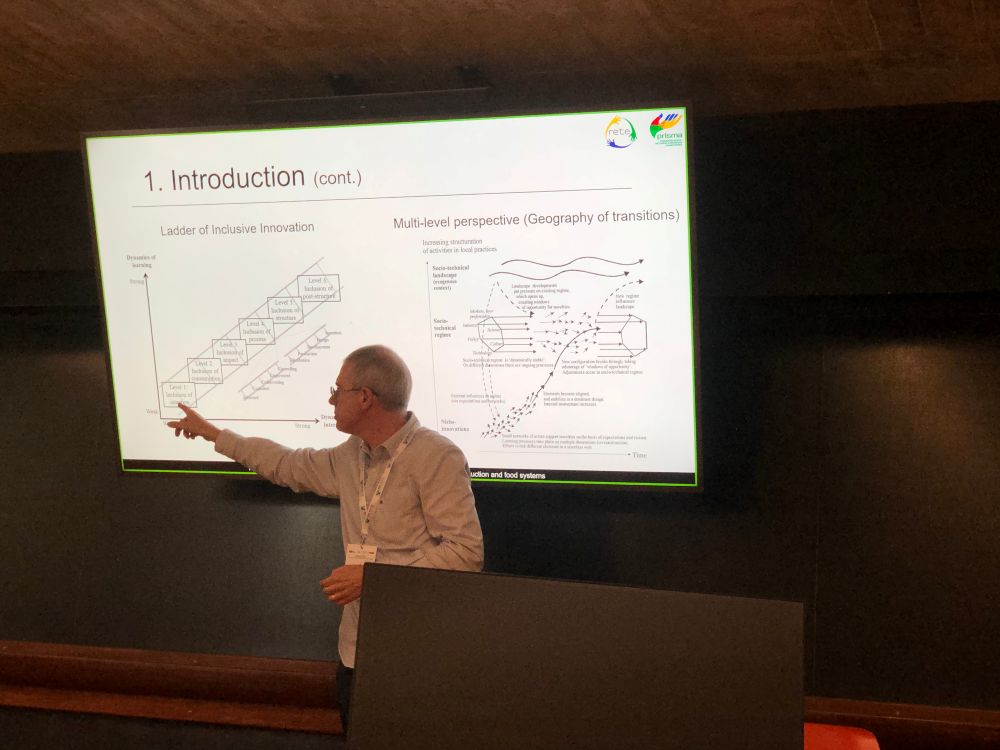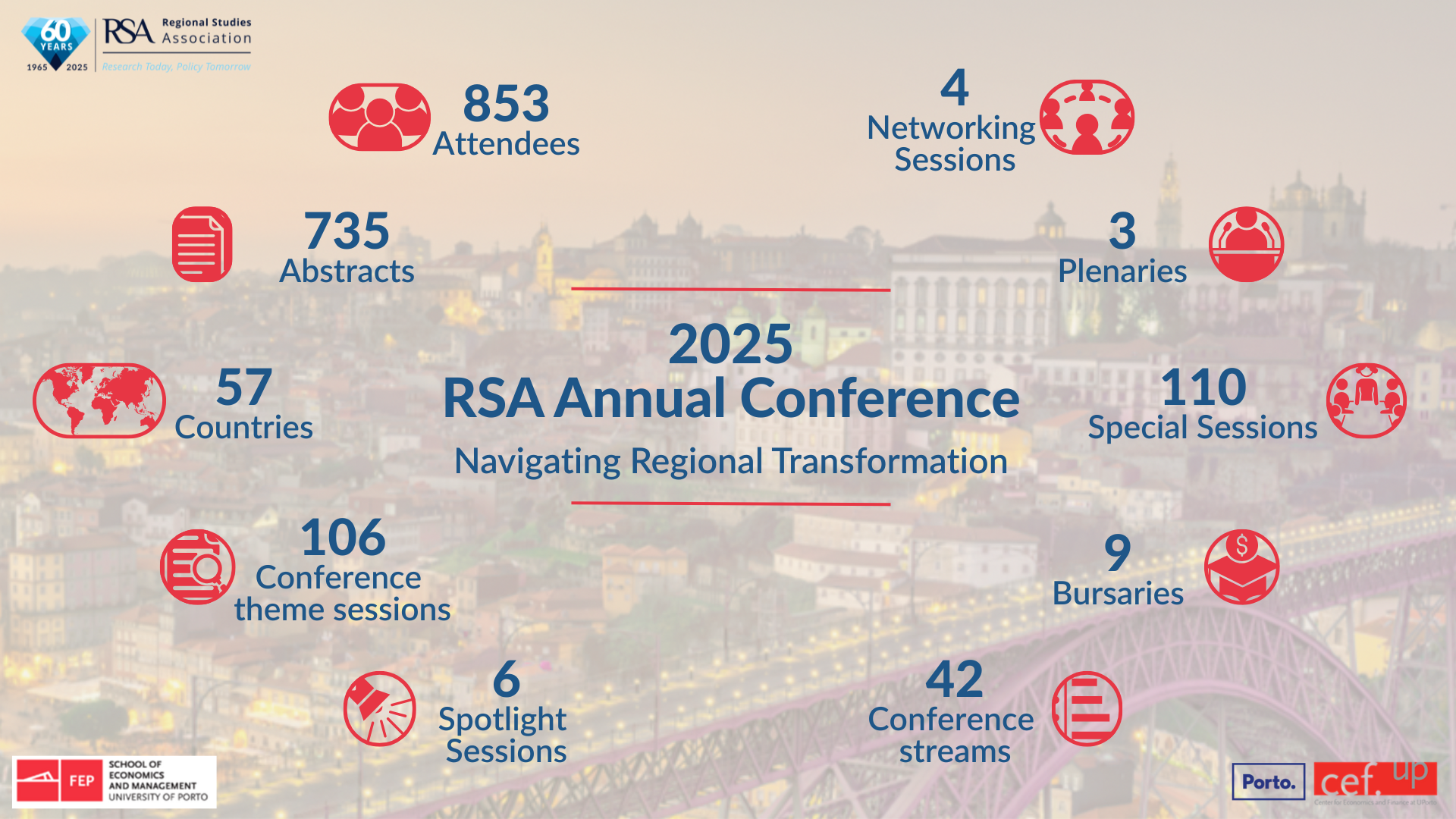RSA Events – Event Report – RSA Annual Conference, Inclusive Growth, Housing, and Well-Being

RSA Events – Event Report – RSA Annual Conference, Coproduction, Environmental Change, and Regional Futures
2025 RSA Annual Conference
Navigating Regional Transformation
University of Porto, Portugal
6 May 2025 – 9 May 2025

Report on the session Inclusive Growth, Housing, and Well-Being (Wednesday, May 7, 2025)
By Elli Papastergiou (e-mail), School of Spatial Planning and Development, Faculty of Engineering, Aristotle University of Thessaloniki, Greece
This year’s Regional Studies Association’s Annual Conference was held from May 6 to 9, 2025, at the University of Porto. Under the theme “Navigating Regional Transformation,” the conference brought together early-career and established scholars and policymakers, providing a platform for engaging in dialogue and critical debate on the multifaceted challenges faced by regions across the globe in an era of ‘polycrisis’ and multiple transitions. Within the conference’s timely agenda, it was truly astounding to witness how the topic of well-being emerged as a fundamental one. With five dedicated sessions and several others touching on the subject, the conference showcased cutting-edge research on well-being. One of the sessions, titled ‘Inclusive Growth, Housing, and Well-Being,’ convened speakers who addressed various dimensions of the topic, with presentations spanning multiple spatial scales.
Gulia Slater from STATEC Research, Luxembourg, opened the session with a presentation that explored the concept of defensive growth, where economic expansion in wealthy societies leads to social and environmental degradation, driving individuals to increase consumption to protect their well-being. Using regression analysis and Gallup World Poll data, they quantified defensive consumption, finding that nearly 18% of European consumption is used to offset deteriorations in trust, mental health, inequality, and environmental threats. The study aligns with the ‘beyond GDP’ movement, suggesting that actual progress should focus on sustainable improvements in well-being, not just GDP growth.
Likewise, Laura de Dominicis from the European Commission (DG REGIO) remained focused on the European level, offering an insightful glimpse into the quality of urban life across European cities. Her presentation highlighted key findings from the latest version of the Quality of Life in European Cities survey, which captures the experiences and perceptions of city residents across 83 European cities. The report showed overall high satisfaction, with smaller and non-capital cities rated particularly well for safety, cleanliness, healthcare, and housing. While capital cities offer more job opportunities, non-capital cities are perceived as better environments for families and the elderly. The results underscore regional diversity and rising satisfaction in Eastern Europe, offering valuable insights for urban policy.
On the other hand, Nicola Pontarollo from the University of Brescia, Italy, delved into the suburban level. The presentation provided insights from the ongoing work within the SURVIVE framework (Shaping urban and rural contexts for healthier lives: environment as a key driver for promoting health) research project. The project aims to develop a Health Local Monitor (HLM), a dashboard to map health outcomes and their environmental determinants at the suburban level. The project incorporates objective and subjective data to capture inequalities in health linked to environmental and socio-economic factors. A multi-pillar approach highlights the need for place-based, inclusive strategies to support vulnerable populations and guide public investments, particularly in the post-pandemic context and under initiatives like NextGenerationEU.
Finally, Iván Tartaruga from the University of Porto, Portugal, focused on the regional level. His presentation examined inclusive innovation in rural food systems through case studies in Brazil’s Northeast. Through local knowledge and collaboration, Tartaruga analysed how family farmers form innovation niches that support sustainable and inclusive agriculture. Although vulnerable to dominant food and energy regimes, these grassroots innovations represent initial steps toward transformative socio-technical transitions. The study emphasised the critical role of informal institutions, such as trust and cooperation, in supporting such transitions.
The speakers’ variety of topics provoked an inspiring debate that highlighted the growing relevance of well-being as a lens through which to examine regional development, moving beyond traditional economic metrics. The methodological diversity and the variety of geographic perspectives showcased the richness of state-of-the-art research in this area and its potential to inform more inclusive and sustainable regional policies to enhance the well-being of present and future generations.


Complementary reading
Conference Statistics

The Regional Studies Association’s Annual Conference 2025 #RSA25 was held in partnership with the School of Economics and Management at the University of Porto, Portugal. This four-day conference brought together academics and policymakers to exchange news, views and research findings from regional studies and science, regional and economic development, policy and planning. There was representation from 57 different global territories as we gathered established experts and early career researchers in the beautiful city of Porto.
The conference featured 750+ presentations, high-profile plenary speakers, several specially convened sessions, workshops, professional development and networking sessions, walking tours and field trips. The social programme included the conference dinner and a reception, side events, exhibitor stalls and post-conference tours to explore Porto.